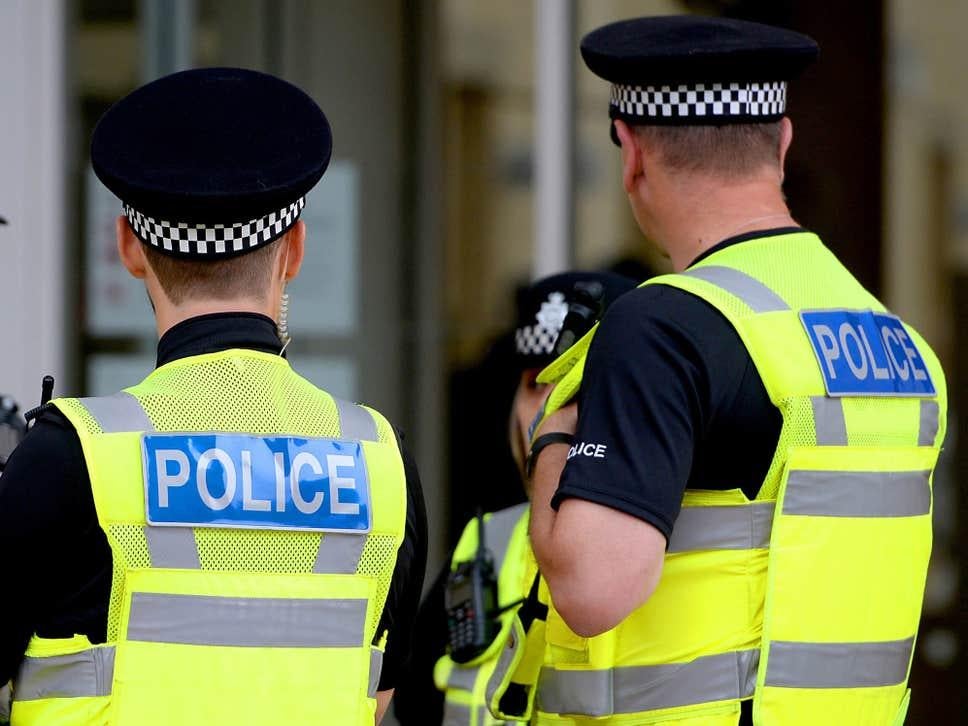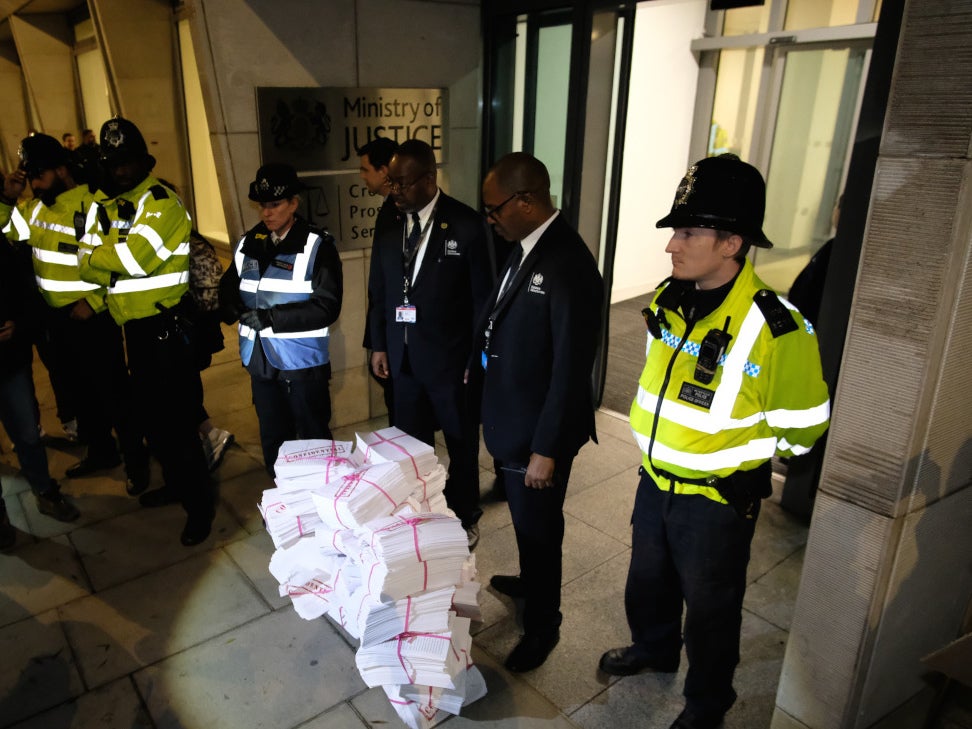Police ‘overwhelmed’ by digital evidence as 12,000 seized devices awaiting examination
Police blame explosion of data for delaying investigations, which is causing victims to drop out of cases, writes

More than 12,000 phones and other digital devices are being held by police in England and Wales as case backlogs worsen in the criminal justice system, new figures show.
Police have a responsibility to investigate relevant material from suspects and witnesses, but the policy has sparked controversy by delaying investigations and distressing victims.
Some forces said devices could take more than a year to investigate, and the Police Federation said officers were “overwhelmed” by digital evidence.
They must examine it before cases are considered by the Crown Prosecution Service (CPS) and long delays are believed to be a factor causing victims to drop out before trial.
The proportion of crimes being charged has fallen to a record low of 7.3 per cent.
Rape prosecutions stand at just 1.4 per cent of recorded attacks, amid controversy over police seizing complainants’ phones to examine their messages, social media and photos.
The CPS says the police are referring fewer cases for its consideration, while senior police officers have accused prosecutors of demanding more and more evidence from phones and digital devices.
Data provided to the Press Association news agency under a freedom of information request showed that a total of 12,122 devices including computers, tablets and phones were awaiting examination across 32 forces.
They were seized for investigations into a wide variety of crimes, including indecent images of children, violence, sexual offences, fraud, drug offences, burglary and robbery.
The figures, from February and March, do not include a dozen other forces in England and Wales that did not respond.
They showed dramatic differences in different areas, with Northumbria Police having 1,345 devices in its backlog, but British Transport Police only 32.
Forces giving high totals included Merseyside, Scotland Yard, Hertfordshire and Kent, while those with the lowest figures were Surrey, Durham and Wiltshire.
Simon Kempton, the technology lead for the Police Federation of England and Wales, said forces had different approaches and levels of technology at their disposal.
“Forces need to be better at working in unison, even if retaining local autonomy is important to them,” he added.
”This could be overcome quickly by mandating forces to work as regions and to adopt the same regional approach.”

Mr Kempton added: “The biggest issue with having a backlog of devices is it resulting in disclosure issues, with potentially vital pieces of evidence not making it to court in time.
”Having the extracted data is one thing, but analysing possibly hundreds of pieces of potential evidence from just one device once you’ve obtained it is quite another, taking a huge amount of time and skill.”
The disclosure process came under sharp focus from the end of 2017 after a string of defendants including student Liam Allan, who was accused of rape, had charges against them dropped when critical material was discovered at the last minute.
The scandal followed numerous warnings that relevant evidence was not being passed to the prosecution or defence by police officers, amid staffing issues following years of budget cuts.
Mr Kempton said the latest figures showed “how overwhelmed investigators are with the sheer volume of digital evidence”.
“Forces are struggling to attract new detectives, which is resulting in mounting workloads,” he added.
”There is also a need for forces to invest in technology which can help speed up this process by extracting and sorting this data automatically.”
Those able to provide an estimate of how long it would take to clear the current backlog gave figures ranging from around three months to more than a year.
The Metropolitan Police estimated that 60 per cent of its exhibits would be examined within three months, 39 per cent would take three to 12 months, and 1 per cent would take more than a year.
In February, forensic science regulator Dr Gillian Tully highlighted a national skills shortage in digital forensics, and claimed there was a ”woeful level of compliance”.
She found one instance where software used to analyse mobile phone data identified the wrong recipient of deleted messages.
On 1 April, a new Forensic Capability Network (FCN) was launched to create a more unified approach between police forces and boost standards in forensics.
The National Police Chiefs’ Council lead for digital forensics said it would help reduce the size of the backlog.
Deputy Chief Constable Nick Baker said: ”The majority of police investigations necessitate some investigation of digital devices, and the process of identifying reasonable lines of inquiry, extracting the relevant material from devices and reviewing it is time-consuming, so there will always be a pool of digital devices to be investigated.
“But with the launch of the FCN and ongoing efforts to identify smarter working practices, we aim to see a reduction in the number of devices to be investigated at any one time.”
In January, the government announced a new royal commission on the criminal justice system that it said would deliver a “fundamental review of key issues” and “make it more efficient and effective”.
Join our commenting forum
Join thought-provoking conversations, follow other Independent readers and see their replies
Comments